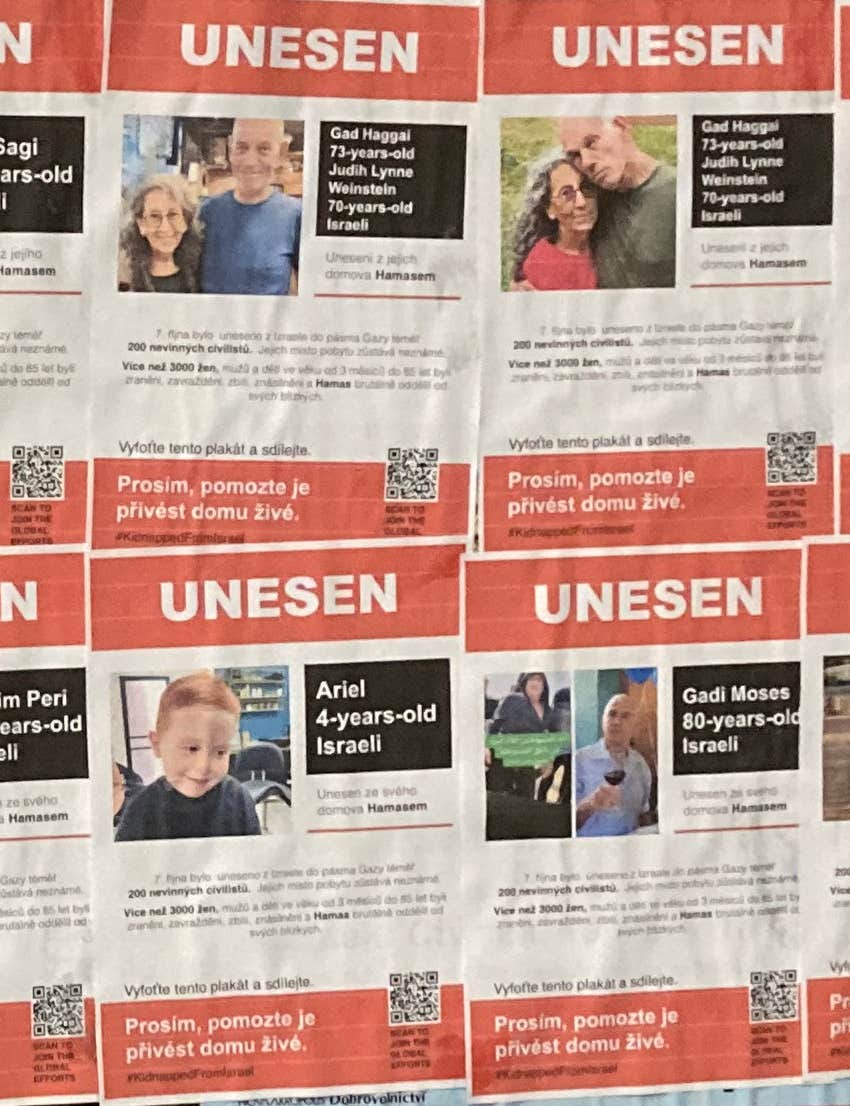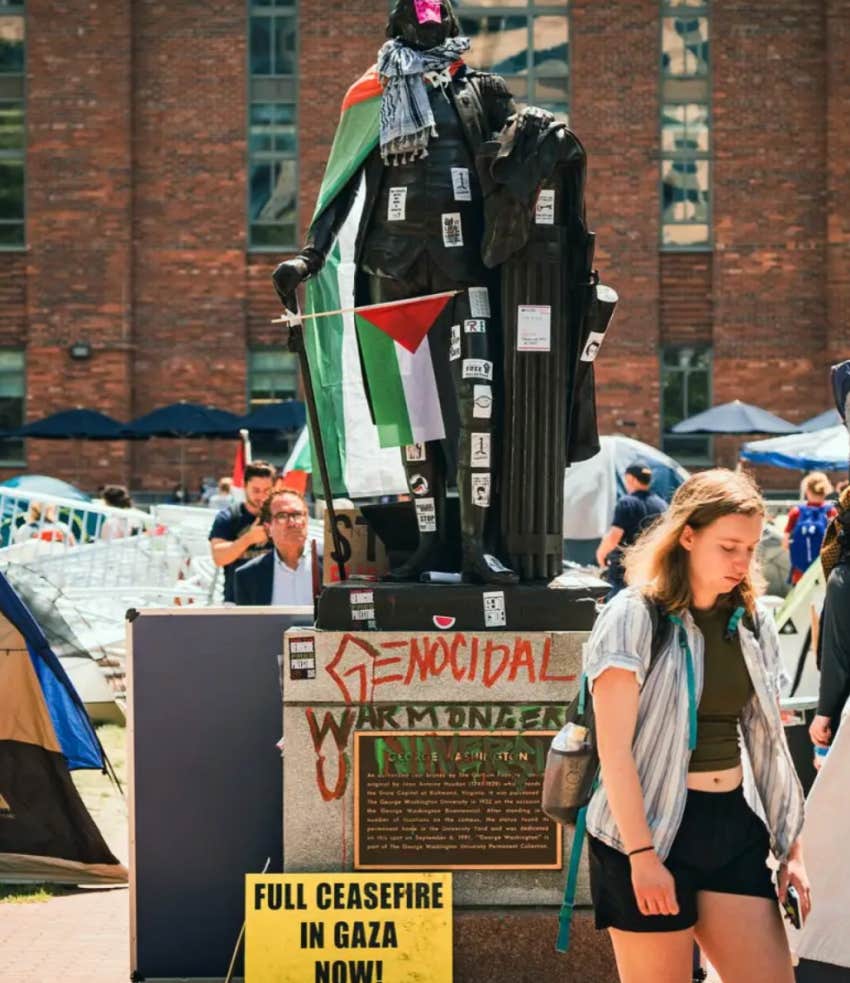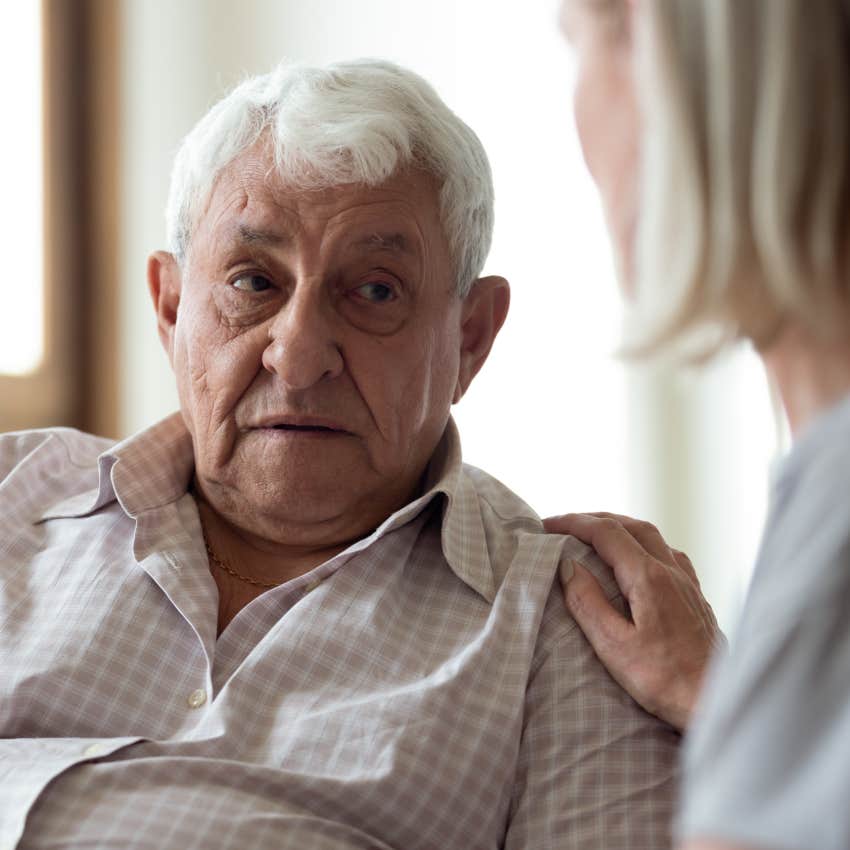The Invisible Pain Of Traumatic Invalidation Is Breaking Hearts, Families, And Minds — But We Can Heal
Despite the rapid rise in antisemitism following October 7, the Jewish community is still reeling from seemingly endless traumatic invalidation.
 Viacheslav Okhrymenko / Shutterstock
Viacheslav Okhrymenko / Shutterstock It was after reading a research article in the Journal of Human Behavior in the Social Environment about the traumatic invalidation experienced by the Jewish community following the October 7, 2023, attacks that I knew I had to write this.
I was emotionally shaken. I wept. Not just for the people mentioned in that paper, but for all of us. For my family, too. We were not spared. People we trusted turned cold, dismissive, and sometimes cruel, just because we have a personal connection to the tragedy in the Middle East.
I didn’t expect it. It hurt in ways I didn’t think were possible. That article did more than inform me. It broke me open. And in that heartbreak, a deeper purpose emerged.
 01x07x2022000, CC0, via Wikimedia Commons
01x07x2022000, CC0, via Wikimedia Commons
There is much to be done for all of us to heal, but this is where it begins. This is where I ask you to feel this with me. To remember the moments when you felt dismissed, blamed, or silenced in your pain, and to understand how to break that cycle before it costs us more than it already has.
What is traumatic invalidation?
Psychologist Melanie Harned defines traumatic invalidation as when someone repeatedly denies, dismisses, or minimizes your deeply felt emotional pain, especially when that pain is tied to trauma. It's the moment someone says, “You’re too sensitive,” or “That didn’t happen the way you say it did,” or worse, “Get over it.”
And it’s not just happening on a global or political scale. It's happening in marriages, between best friends, and inside our families. It's why people walk out of relationships feeling more alone than they did going in.
Traumatic invalidation is happening everywhere, and it may be happening to you
Have you ever shared something painful and had someone shrug it off? Have you ever been called dramatic for feeling deeply, or blamed for how someone else hurt you?
That’s traumatic invalidation. And we’ve normalized it. We’ve turned defensiveness into a substitute for listening. We’ve replaced compassion with comparison. We deny others’ suffering because it scares us to face our own.
But this is more than emotional immaturity. It’s now become a cultural crisis. Since October 7, thousands of Jewish students on college campuses have been told their grief is political. That their pain is inconvenient. That they should be silent. The cost is profound, and it's not just political. It’s deeply personal.
 GWU Anti-Israel Protest © Ted Eytan (Licensed under CC BY 4.0)
GWU Anti-Israel Protest © Ted Eytan (Licensed under CC BY 4.0)
We see the same invalidation ripple through families when a partner tries to explain what it’s like to feel unseen, and the other dismisses it. We see it when LGBT teens are told they’re going through a phase. We see it when Black voices expressing generational pain are asked to be more polite. We see it when trauma survivors are told that they are exaggerating.
The cost of traumatic invalidation
When someone is invalidated in their pain, they don’t just get hurt. They begin to doubt their own reality. That leads to anxiety, depression, emotional shutdown, and resentment. In relationships, it’s the moment someone stops sharing. Stops hoping to be understood. Stops trusting you with their truth.
In communities, it fuels division, alienation, and hate. Not always be loud, violent hate. Sometimes the hate we carry is silent and masked as disconnection, indifference, or superiority.
Traumatic invalidation breaks hearts. It ends marriages. It ends friendships. It turns neighbors into enemies.
We’ve seen what healing from traumatic invalidation can look like
In South Africa, after the collapse of apartheid, the Truth and Reconciliation Commission allowed victims and perpetrators to share their stories. Not for vengeance, but for validation and healing.
In the Middle East, Seeds of Peace brings Israeli and Palestinian youth together to share their lived realities, often for the first time they've ever truly seen one another. These conversations have changed lives. Friendships have formed where hatred once lived.
And in countless therapy rooms around the world, marriages once headed for divorce have turned around, not through agreement, but through validation. When one partner finally says, "I believe you. I hear you. Your pain matters to me," something shifts. Walls come down. Hearts open.
How we can begin to change the tide together
The tide will not turn with theory. It turns through action. And not just any action, but real, emotionally engaged action that begins at home and ripples outward.
Here’s how we make this personal and powerful.
1. Instead of brushing off your partner’s feelings as overreactions, pause and say: "Tell me more about what you're feeling right now. I want to understand."
2. Instead of cutting off a friend who expresses political pain, say: "I may not fully understand, but I can see this really hurts. I'm here to listen."
3. Instead of correcting your child when they say they're scared or overwhelmed, try: "That makes sense. It can feel like too much sometimes. Let's talk about it."
4. Instead of rolling your eyes at a colleague speaking about racism or antisemitism, say: "Thank you for being willing to share that. I want to better understand your experience."
5. Instead of debating someone’s lived reality, get truly curious: "How long have you felt this way? What would help you feel supported?"
6. Instead of labeling a community’s reaction as dramatic, ask: "What has this community gone through that I might not have seen?"
7. Instead of reposting invalidating or polarizing content, amplify voices and platforms that model validation:
- Listen to "We Can Do Hard Things" with Glennon Doyle for honest conversations on emotional truth.
- Support publishers like The Marginalian (formerly Brain Pickings) that focus on thoughtful, trauma-aware insights.
- Engage with institutions like The Forgiveness Project, which uses storytelling for healing.
8. Instead of trying to change the world with outrage, start by restoring one relationship with compassion.
These are not small gestures. These are revolutionary actions. Because every time we choose validation over dismissal, we restore trust in ourselves and can discern trustworthiness in others. We reclaim our ability to see, hear, and experience the challenges others are facing. We start to rebuild what’s been broken, not just in our relationships, but in the world.
 fizkes / Shutterstock
fizkes / Shutterstock
Why healing emotional invalidation matters so much more than we think
We are, right now, in a battle for connection. The world is more divided than ever. Not because we’re so different, but because we’ve stopped listening. Stopped honoring each other’s pain. Stopped believing we can live in a world that is safe, respectful, and kind.
But we can. And it starts here, with how we show up in our relationships, in our families, in our communities.
This is how we reclaim each other. This is how we build safety. This is how we remember that being human isn’t about being right. It’s about being real.
We have a long way to go, but the first steps are always the most powerful. Validate someone today. Hear them. Honor their experience. And let them know that they matter.
Because when we stop dismantling each other, we begin to rebuild something worth living for.
Larry Michel is a relationship coach & founder of the Institute of Genetic Energetics and author of LASTING: 11 Illuminations & Essential Questions for a Co-Creative Evolutionary Partnership. Larry’s science uncovers how people's unique genetic coding drives every relationship decision, including who they're drawn to as partners.

